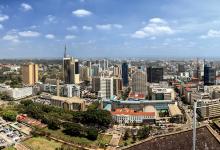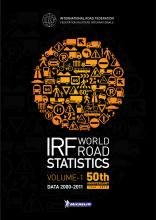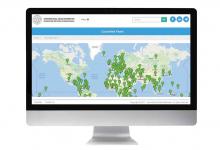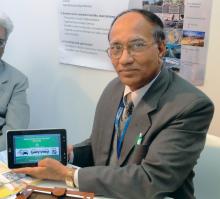During his recent radio programme “Mann Ki Baat,” Narendra Modi, The Prime Minister of India, expressed concern regarding the road safety situation on Indian roads and the number of lives being lost as a result of traffic accidents. Modi said, “The statistics on road accidents in our country are shocking. There is an accident every minute. And due to road accidents there is a death every four minutes." He further noted that lives can be saved by taking the injured to hospital within the first hour, also kno
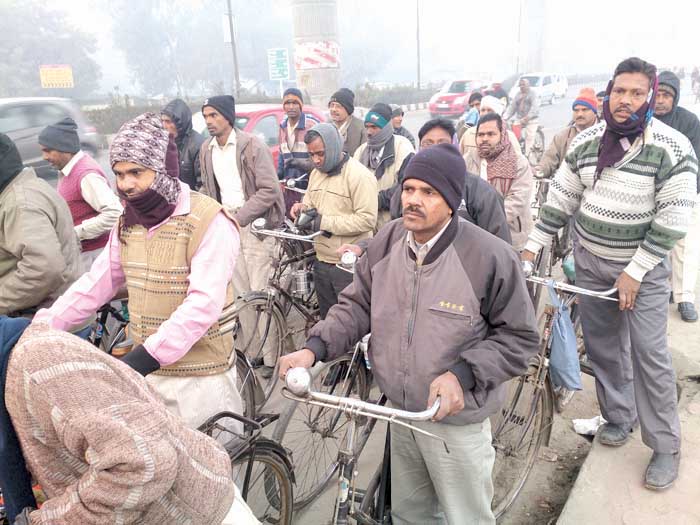
India’s roads face difficult challenges in reducing the casualty rate, with vulnerable road users at particular risk
Delivering trauma care programme benefits safety for vulnerable road users
During his recent radio programme “Mann Ki Baat,” Narendra Modi, The Prime Minister of India, expressed concern regarding the road safety situation on Indian roads and the number of lives being lost as a result of traffic accidents. Modi said, “The statistics on road accidents in our country are shocking. There is an accident every minute. And due to road accidents there is a death every four minutes." He further noted that lives can be saved by taking the injured to hospital within the first hour, also known as the Golden Hour, of any crash. According to Indian Government officials, more than 50% of road traffic accident fatalities can be prevented by providing adequate care during this Golden Hour.
In response to Modi’s call to improve road safety in India, the International Road Federation, Geneva has taken up the challenge of providing trauma care to road traffic accidents in India. As part of this initiative, IRF Geneva, together with Federation Internationale de l'Automobile (FIA), has developed a course for first responders to accidents, to enable them to provide appropriate trauma care to accident victims.
The course for first responders is focused on enabling them to provide the appropriate trauma care to victims of traffic accidents. This course will provide participants with both the theory and practice of providing trauma care. It includes modules on how to assess the initial condition of the victim; how to ensure the safe transfer of the crash victim to a hospital or clinic where emergency care can be provided; and how to use Cardio Pulmonary Resuscitation (CPR) techniques.
The course is initially being targeted at police personnel, truck drivers, drivers of public transport vehicles, drivers of company or government owned vehicles, volunteers, and schoolchildren. The IRF is hopeful that as the course gets underway and increasing numbers of people are trained in providing trauma care to accident victims, it will help to reduce the numbers of fatalities from road accidents in India.
For more information on this course, please contact: %$Linker:2 Email <?xml version="1.0" encoding="utf-16"?><dictionary /> 0 0 0 oLinkEmail [email protected] email: [email protected] false mailto:[email protected] true false %>. Or visit the 1201 IRF Geneva website.
During his recent radio programme “Mann Ki Baat,” Narendra Modi, The Prime Minister of India, expressed concern regarding the road safety situation on Indian roads and the number of lives being lost as a result of traffic accidents. Modi said, “The statistics on road accidents in our country are shocking. There is an accident every minute. And due to road accidents there is a death every four minutes." He further noted that lives can be saved by taking the injured to hospital within the first hour, also known as the Golden Hour, of any crash. According to Indian Government officials, more than 50% of road traffic accident fatalities can be prevented by providing adequate care during this Golden Hour.
In response to Modi’s call to improve road safety in India, the International Road Federation, Geneva has taken up the challenge of providing trauma care to road traffic accidents in India. As part of this initiative, IRF Geneva, together with Federation Internationale de l'Automobile (FIA), has developed a course for first responders to accidents, to enable them to provide appropriate trauma care to accident victims.
The course for first responders is focused on enabling them to provide the appropriate trauma care to victims of traffic accidents. This course will provide participants with both the theory and practice of providing trauma care. It includes modules on how to assess the initial condition of the victim; how to ensure the safe transfer of the crash victim to a hospital or clinic where emergency care can be provided; and how to use Cardio Pulmonary Resuscitation (CPR) techniques.
The course is initially being targeted at police personnel, truck drivers, drivers of public transport vehicles, drivers of company or government owned vehicles, volunteers, and schoolchildren. The IRF is hopeful that as the course gets underway and increasing numbers of people are trained in providing trauma care to accident victims, it will help to reduce the numbers of fatalities from road accidents in India.
For more information on this course, please contact: %$Linker:

